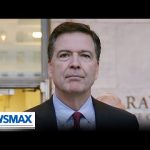President Trump stunned the comfortable consensus this week by openly saying the United States will resume nuclear weapons testing — a break with the three-decade moratorium established after 1992. In a sit-down interview he argued the country cannot sit idle while rivals test covertly underground, and he made it plain that Washington will conduct whatever tests are necessary to ensure the arsenal actually works.
Those comments were more than rhetoric; Trump pointed to alleged testing by Russia, China, North Korea and Pakistan as the rationale for ending decades of silence, insisting secrecy abroad doesn’t mean the threat isn’t real. The mainstream’s reflex was to scold and obfuscate, but reporters and transcripts show the president laying out a blunt national-security calculus — testing to ensure deterrence rather than to provoke needless escalation.
Let’s be crystal clear about history: the United States last carried out a full-scale nuclear detonation in 1992, and the so-called moratorium that followed has been the backbone of decades of stockpile stewardship and uneasy trust. That 33-year pause preserved a moral posture but also left unanswered technical questions about aging warheads and readiness that adversaries have exploited.
Moscow did not respond with calm statesmanship; Russia’s defense leadership publicly urged preparations for full-scale tests of its own after Washington’s announcement. Russian Defense Minister Andrey Belousov reportedly told President Putin it is “expedient to start preparing for full-scale nuclear tests immediately,” signaling that the old détente of the 1990s has evaporated.
For those confused by names and headlines, the man speaking for Moscow is Andrey Belousov — the civilian economist Putin installed as defense minister during his 2024 reshuffle — not some phantom “Sergei Belousov” spun by partisan pundits. Russia’s inner circle has been reorganized for wartime production and posture, and this personnel change matters for how Moscow responds to American moves.
Conservatives who want a safe America should applaud, not panic. Deterrence isn’t recklessness; it’s the only thing that kept the peace when Moscow and Beijing were prowling the boundaries of permissive assumptions. It’s time to stop pretending that a posture of moral superiority alone will prevent enemies from building secret capabilities or from gambling on American timidity.
The scolds in the establishment and the paddlers of “defense by protocol” will howl about escalation and “signaling.” They always do. But hard truths cut through their sanctimony: if war can be prevented by credible force and clear demonstration, then demonstrating capability and will is not reckless — it is responsible. We cannot outsource national security to hope.
This moment lays bare a choice: accept the reality of a restless, revanchist world, or keep acting as if treaties and good intentions guarantee safety. President Trump has chosen to lift the curtain; let the nation debate the means, but never forget who benefits if we shrink back from deterrence.




